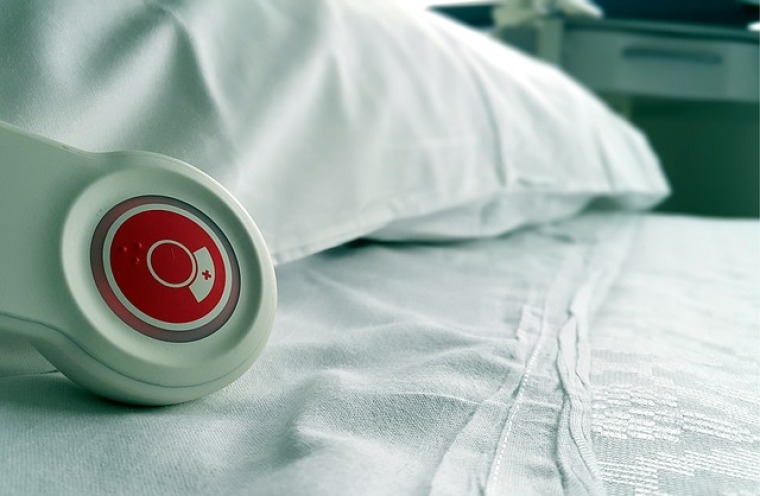Pro-life doctors must refer patients requesting assisted suicide to other physicians, Ontario court rules

An Ontario court has ruled that doctors who are opposed to assisted suicide must refer patients who request the procedure to other physicians who are willing to carry it out.
On Wednesday, the three justices of the Ontario Superior Court acknowledged that the College of Physicians and Surgeons of Ontario (CPSO) policy requiring doctors to refer patients for procedures that they refuse to perform, such as euthanasia and abortion, violates their Charter right to religious freedom.
However, the court contended that in light of the goal of "ensuring access to health care," the policy presents "reasonable limit on religious freedom, demonstrably justified in a free and democratic society."
According to The Canadian Press, the legal challenge to the CPSO policy was launched by a group of five doctors and three professional organizations, namely, the Christian Medical and Dental Society of Canada (CMDSC), the Canadian Federation of Catholic Physicians' Societies (CFCPS) and Canadian Physicians for Life (CPL).
The group argued that the requirement amounted to being forced to take part in the treatment and infringed on their right to freedom of religion and conscience.
The CPSO, on the other hand, contended that the policy was aimed at balancing the moral beliefs of individual physicians while nonetheless ensuring access to care.
The court contended that the breach to the doctors' religious freedom is justified, noting that the benefits to the public outweigh the cost to physicians who can choose to practice a specialty where they will not encounter such moral dilemmas.
"The goal of ensuring access to health care, in particular equitable access to health care, is pressing and substantial. The effective referral requirements of the policies are rationally connected to the goal," Justice Herman J. Wilton-Siegel wrote on behalf of the panel.
"The requirements impair the individual applicants' right of religious freedom as little as reasonably possible in order to achieve the goal," he added.
CPL President Dr. Ryan Wilson decried the court's decision, saying it puts doctors "who entered the field of medicine to provide quality, compassionate, and patient-centered care" in "an impossible position."
"They don't believe ending a patient's life is medicine, and they don't believe they can offer hope and healing in one room while assisting in killing a patient in another," he remarked.
Some observers have said that the court did not go far enough to protect the rights of patients to receive care.
Udo Schuklenk, a bioethicist at Queen's University in Kingston, Ont., acknowledged that protections for conscientious objectors are valuable in situations such as military conscription, but asserted that they have no place in professions like medicine, in which people participate voluntarily. He went on to note that some countries, such as Sweden and Finland, do not allow for moral objections in medicine.
Larry Worthen, executive director of the CMDSC, said that there was "no evidence that conscientious objection ever results in a failure of access" to these practices, and that "the implications for physicians were serious and more than trivial or insubstantial." He said that the doctors are now reviewing their options in regards to an appeal.
 Christians don't have to affirm transgenderism, but they can’t express that view at work: tribunal
Christians don't have to affirm transgenderism, but they can’t express that view at work: tribunal Archaeology discovery: Medieval Christian prayer beads found on Holy Island
Archaeology discovery: Medieval Christian prayer beads found on Holy Island Presbyterian Church in America votes to leave National Association of Evangelicals
Presbyterian Church in America votes to leave National Association of Evangelicals Over 50 killed in 'vile and satanic' attack at Nigerian church on Pentecost Sunday
Over 50 killed in 'vile and satanic' attack at Nigerian church on Pentecost Sunday Ukrainian Orthodox Church severs ties with Moscow over Patriarch Kirill's support for Putin's war
Ukrainian Orthodox Church severs ties with Moscow over Patriarch Kirill's support for Putin's war Islamic State kills 20 Nigerian Christians as revenge for US airstrike
Islamic State kills 20 Nigerian Christians as revenge for US airstrike Man who served 33 years in prison for murder leads inmates to Christ
Man who served 33 years in prison for murder leads inmates to Christ


 Nigerian student beaten to death, body burned over ‘blasphemous’ WhatsApp message
Nigerian student beaten to death, body burned over ‘blasphemous’ WhatsApp message 'A new low': World reacts after Hong Kong arrests 90-year-old Cardinal Joseph Zen
'A new low': World reacts after Hong Kong arrests 90-year-old Cardinal Joseph Zen Iran sentences Christian man to 10 years in prison for hosting house church worship gathering
Iran sentences Christian man to 10 years in prison for hosting house church worship gathering French Guyana: Pastor shot dead, church set on fire after meeting delegation of Evangelicals
French Guyana: Pastor shot dead, church set on fire after meeting delegation of Evangelicals ‘Talking Jesus’ report finds only 6% of UK adults identify as practicing Christians
‘Talking Jesus’ report finds only 6% of UK adults identify as practicing Christians Mission Eurasia ministry center blown up in Ukraine, hundreds of Bibles destroyed: 'God will provide'
Mission Eurasia ministry center blown up in Ukraine, hundreds of Bibles destroyed: 'God will provide' Church holds service for first time after ISIS desecrated it 8 years ago
Church holds service for first time after ISIS desecrated it 8 years ago Burger King apologizes for 'offensive campaign' using Jesus' words at the Last Supper
Burger King apologizes for 'offensive campaign' using Jesus' words at the Last Supper Uganda: Muslims abduct teacher, burn him inside mosque for praying in Christ’s name
Uganda: Muslims abduct teacher, burn him inside mosque for praying in Christ’s name